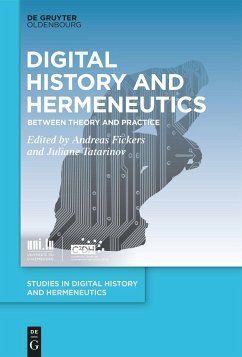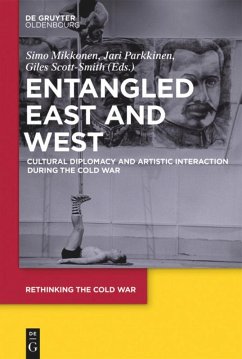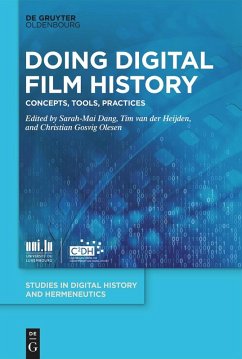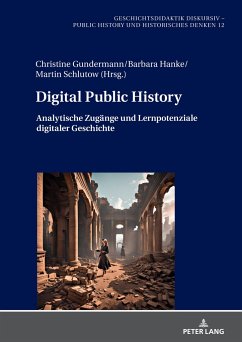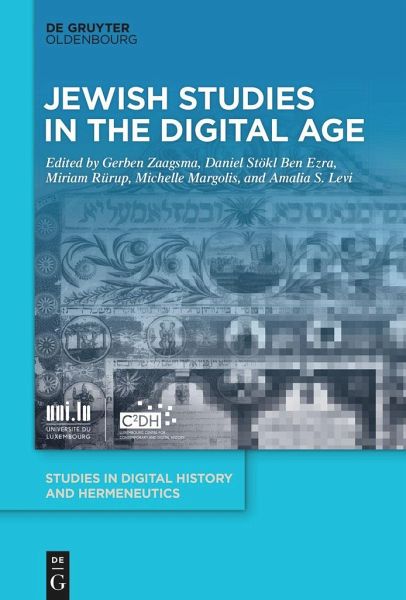
Jewish Studies in the Digital Age
Versandkostenfrei!
Versandfertig in 6-10 Tagen
38,99 €
inkl. MwSt.

PAYBACK Punkte
19 °P sammeln!
As in all fields and disciplines of the humanities, Jewish Studies scholars find themselves confronted with the rapidly increasing availability of digital resources (data), new technologies to interrogate and analyze them (tools), and the question of how to critically engage with these developments. This volume discusses how the digital turn has affected the field of Jewish Studies. It explores the current state of the art and probes how digital developments can be harnessed to address the specific questions, challenges and problems that Jewish Studies scholars confront. In a field characteris...
As in all fields and disciplines of the humanities, Jewish Studies scholars find themselves confronted with the rapidly increasing availability of digital resources (data), new technologies to interrogate and analyze them (tools), and the question of how to critically engage with these developments. This volume discusses how the digital turn has affected the field of Jewish Studies. It explores the current state of the art and probes how digital developments can be harnessed to address the specific questions, challenges and problems that Jewish Studies scholars confront. In a field characterised by dispersed sources, and heterogeneous scripts and languages that speak to a multitude of cultures and histories, of abundance as well as loss, what is the promise of Digital Humanities methods--and what are the challenges and pitfalls?
The articles in this volume were originally presented at the international conference #DHJewish - Jewish Studies in the Digital Age, which was organised at the Centre for Contemporary and Digital History (C²DH) at University of Luxembourg in January 2021. The first big international conference of its kind, it brought together more than sixty scholars and heritage practitioners to discuss how the digital turn affects the field of Jewish Studies.
The articles in this volume were originally presented at the international conference #DHJewish - Jewish Studies in the Digital Age, which was organised at the Centre for Contemporary and Digital History (C²DH) at University of Luxembourg in January 2021. The first big international conference of its kind, it brought together more than sixty scholars and heritage practitioners to discuss how the digital turn affects the field of Jewish Studies.



